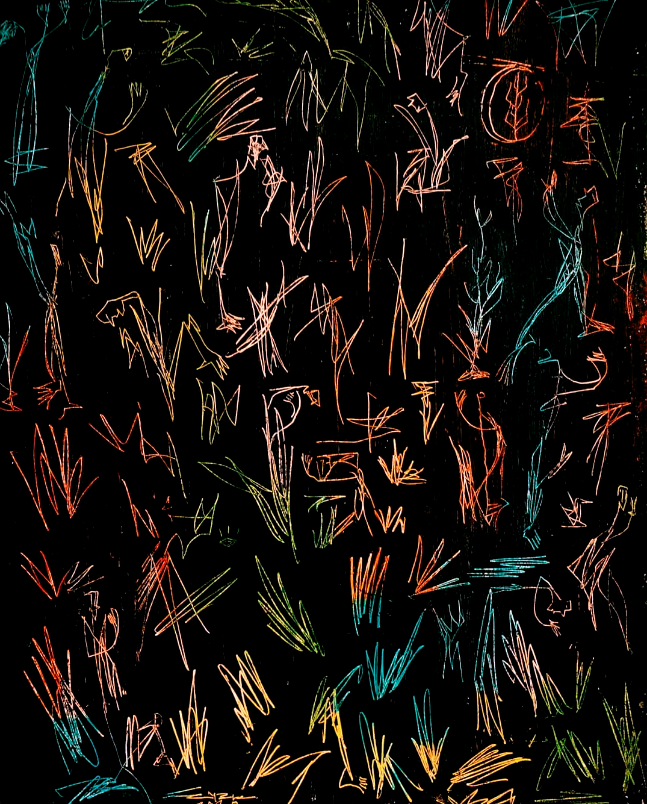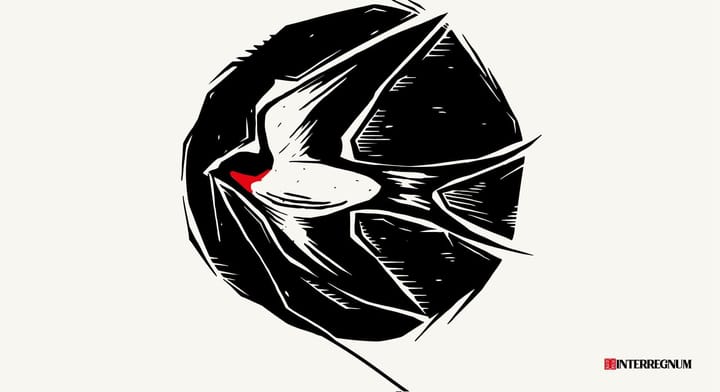Stand Up for the Right to Fail
In a world in which creative activity finds itself in the stranglehold of capital, there can be no artistic innovation. There is a need for space. Space to play, and space to fail.

By Christopher Hütmannsberger
There are people who can finish a text in a single sitting, and that seems to work just fine. According to legend, Jack Kerouac wrote On the Road on an endless sheet of paper, typing through whiskey and cigarette-fueled nights at his desk. To what extent this is actually true is very much up for debate, but also hardly the point. Regardless, what is relevant in this case is that this method of creating is only possible under very specific circumstances, if at all. On the one hand, this method requires an immense amount of practice, as well as an extremely high level of confidence. Beyond that, it is also absolutely necessary that the work stems from a person with a well-established reputation at the point of creation. Nobody wants to hear what your neighbour, Steve, wrote down after an LSD trip he had the night before. However, if the text comes from a drunk Leonard Cohen, the situation is entirely different.
This does beg the question of how this discrepancy comes to be in the first place. The esoteric answer is: talent. Even though talent is not an entirely irrelevant factor, the idea that it is the ultimate answer to this question is as short-sighted as a one-off payment is to counter inflation. The longer, far more complex, and much less satisfying answer is: space. Space to play, space to experiment, and space to fail. Honest creativity and artistic innovation can only exist in a space in which there is no need to succeed, especially if that need becomes existential. Therein lies the essence of the incompatibility of art and capitalism. As soon as it becomes necessary to financially profit from a piece of art in order to pay rent or buy food, the willingness to engage in risk shrinks down to a minimum or even disappears entirely. This does not mean that all artistic activity ceases to be, but that if the security which is needed in order to work innovatively is lacking, it is understandable why so many will revert back to what is already tried and tested.

In order to support innovation and resist eternal stagnation in what is already established, structures need to be set up that are able to offer a sense of security throughout the creative process. Nobody wants to stick their neck out too far and risk falling without having a safety net to catch them. Of course, you don't want to have to use the net; yet true innovation is often so far from reach that it can only be attained by engaging in at least some form of risk. As long as there is no net to catch those who fall, very few people are willing to reach for something different. And those that do, mostly likely do so only because they can afford to put up a net of their own, or have inherited one from daddy.
Putting up this net and creating space therefore becomes a question of class. On the one hand, it must be made possible for all people to engage in artistic activity, but at the same time, it is also necessary to move away from neoliberal trains of thought that demand that everything must have a (financial) gain. It is this need for profit which confines all artistic activity to the stranglehold of capital. There are things that are simply fun to do, and these must also be allowed to exist. If they do result in some form of profit then that can only be a bonus. But the idea that everything that is created must be profitable destroys all willingness to innovate, and even discourages those who might have something new to say. The point is not to create a system of grants that allows for all of us to sit back and sip fine red wine rather than actually working. The point is to lower the inhibition threshold for people to engage in artistic practice in the first place to a point in which art is no longer a luxury that the haves can afford and the have-nots cannot.
The insidiousness of this inhibition threshold works on multiple levels at once, and in many cases even springs into action before any step towards artistic engagement is taken. The first level of the threshold not only influences the person seeking to become artistically active, but spreads throughout society as a whole in the same fashion as a glass of red wine stains a white table cloth. As capitalism and neoliberalism have become so fortified in the minds of so many in the Western hemisphere, there is an aversion to all things deemed precarious even before the idea of engaging in artistic activity can even be considered. This can be seen in phrases like “why didn’t you learn something proper?,” resulting not only in many people being pre-emptively excluded from the practice of making art through social pressures that stem from a logic of profit, but even that art itself becomes an aspect of life that is reserved for the select few.
Even if these psychological barriers can be overcome, yet another hurdle is placed in the path of the prospective artist. Who can truly afford to spend years honing their skills without payment before it becomes possible to ensure a livelihood from producing art? This aspect is exacerbated by the romanticised image of the penniless artist who achieves their breakthrough only after years of struggle and poverty. That stereotypical expectation only justifies the existence of the hurdles that must be overcome, without questioning why they are there in the first place. Through this, capitalism does not only exclude large parts of society from engaging in art by denying them the space to experiment, but even goes one step further and celebrates the barriers. By 'celebrating' these barriers, a belief is nurtured that the space for artistic practice must be conquered individually. This is exactly how monotony and a thoroughly debilitating belief in competition is created. Innovation does not come from competition, but rather, from the space to experiment and fail.
Within certain communities, these security nets that give people the necessary space to create are already in place. In such cases, it is sufficient to strengthen and expand the existing structures. However, it is vital to remember that this support must never be depend on some arbitrary criteria such as those crafted by most funding bodies, themselves frequently entirely removed from the artistic process. In order to build a better world, we must, first of all, be able to imagine it. A truly free society cannot exist without art, and therefore it is imperative that we create structures that make it possible for all people to make art. Whether or not there is a financial gain, there will most definitely be a social one.

Originally published in German in zeitgenossin, 12/2023.
Christopher Hütmannsberger is a member of Interregnum and an activist, musician, poet, and freelance translator in the field of art and culture.





Comments ()